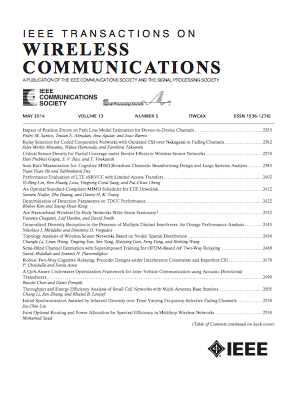基于联邦学习的节能无线网络中的智能攻击与防御方法
IF 10.7
1区 计算机科学
Q1 ENGINEERING, ELECTRICAL & ELECTRONIC
引用次数: 0
摘要
联邦学习(FL)由于其分布式实现能力,是无线网络中基于学习的功能的一种很有前途的技术。另一方面,分布式学习可能会增加受到恶意攻击的风险,因为对本地模型的攻击可能会通过参数交换传播到其他模型。同时,由于无线环境是动态的,这种攻击很难被检测到,特别是考虑到本地模型可能是异构的,具有非独立和同分布(non-IID)数据。因此,评估恶意攻击的影响并开发先进的fl无线网络防御技术至关重要。在这项工作中,我们引入了一种基于联合深度强化学习的细胞睡眠控制场景,以提高网络的能量效率。我们提出了针对基于学习的方法的多种智能攻击,并提出了减轻此类攻击的防御方法。特别是,我们设计了两种攻击模型,生成对抗网络(GAN)增强模型投毒攻击和基于正则化的模型投毒攻击。作为对抗,我们提出了两种防御方案,基于自编码器的防御和基于知识蒸馏(KD)的防御。基于自编码器的防御方法利用自编码器识别恶意参与者,在全局聚合过程中只聚合良性局部模型的参数,而基于kd的防御方法通过控制全局模型和局部模型之间的知识传递来保护模型免受攻击。仿真结果表明,所提出的攻击使网络性能降低34%和77%,导致吞吐量和能源效率降低。另一方面,我们提出的防御方案可以有效地保护系统免受攻击。通过使用所提出的基于kd的防御,系统性能可以恢复到大约95%的安全系统。本文章由计算机程序翻译,如有差异,请以英文原文为准。
Intelligent Attacks and Defense Methods in Federated Learning-Enabled Energy-Efficient Wireless Networks
Federated learning (FL) is a promising technique for learning-based functions in wireless networks, thanks to its distributed implementation capability. On the other hand, distributed learning may increase the risk of exposure to malicious attacks where attacks on a local model may spread to other models by parameter exchange. Meanwhile, such attacks can be hard to detect due to the dynamic wireless environment, especially considering local models can be heterogeneous with non-independent and identically distributed (non-IID) data. Therefore, it is critical to evaluate the effect of malicious attacks and develop advanced defense techniques for FL-enabled wireless networks. In this work, we introduce a federated deep reinforcement learning-based cell sleep control scenario that enhances the energy efficiency of the network. We propose multiple intelligent attacks targeting the learning-based approach and we propose defense methods to mitigate such attacks. In particular, we have designed two attack models, generative adversarial network (GAN)-enhanced model poisoning attack and regularization-based model poisoning attack. As a counteraction, we have proposed two defense schemes, autoencoder-based defense, and knowledge distillation (KD)-enabled defense. The autoencoder-based defense method leverages an autoencoder to identify the malicious participants and only aggregate the parameters of benign local models during the global aggregation, while KD-based defense protects the model from attacks by controlling the knowledge transferred between the global model and local models. The simulation results demonstrate that the proposed attacks can degrade the network performance by 34% and 77%, and lead to lower throughput and energy efficiency. On the other hand, our proposed defense schemes can effectively protect the system from attacks. The system performance can be recovered to approximately 95% of a secure system by using the proposed KD-based defense.
求助全文
通过发布文献求助,成功后即可免费获取论文全文。
去求助
来源期刊
CiteScore
18.60
自引率
10.60%
发文量
708
审稿时长
5.6 months
期刊介绍:
The IEEE Transactions on Wireless Communications is a prestigious publication that showcases cutting-edge advancements in wireless communications. It welcomes both theoretical and practical contributions in various areas. The scope of the Transactions encompasses a wide range of topics, including modulation and coding, detection and estimation, propagation and channel characterization, and diversity techniques. The journal also emphasizes the physical and link layer communication aspects of network architectures and protocols.
The journal is open to papers on specific topics or non-traditional topics related to specific application areas. This includes simulation tools and methodologies, orthogonal frequency division multiplexing, MIMO systems, and wireless over optical technologies.
Overall, the IEEE Transactions on Wireless Communications serves as a platform for high-quality manuscripts that push the boundaries of wireless communications and contribute to advancements in the field.

 求助内容:
求助内容: 应助结果提醒方式:
应助结果提醒方式:


